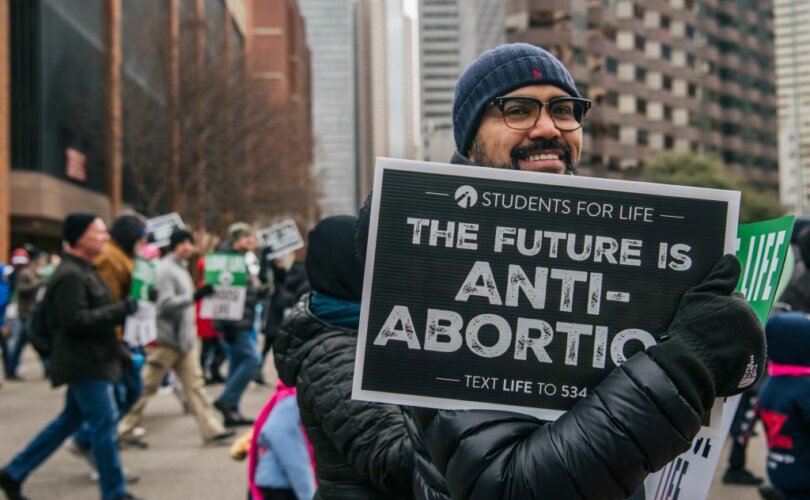Blog Post
What should pro-lifers do following the midterm referendum losses to regain momentum?
By Jonathon Van Maren
The Republican red wave turned out to be a ripple, with a few distinct silver linings in Florida Gov. Ron DeSantis’ election tsunami and the election of candidates like J.D. Vance of Ohio.
But the real tragedy of the midterms was the abortion referendums. In Michigan, Proposition 3 was passed, legalizing abortion up until birth and including a slew of other bad policies. California’s referendum also enshrined abortion until birth in the state constitution; Vermont, too, voted to constitutionally protect “reproductive rights.” In Kentucky, a ballot measure that would have denied any constitutional protections for abortion narrowly failed, although this result will have no effect on the abortion ban passed by the legislature should it survive a legal challenge before the Kentucky Supreme Court.
If you include the failure of the pro-life amendment in Kansas in August and the stunning rejection of an amendment that simply would have mandated care for babies who survive an abortion in Montana, it is clear that the pro-life cause has not fared well with direct democracy.
I asked Dr. Michael New, a fellow at the Charlotte Lozier Institute and a prestigious pro-life scholar and statistician, what these recent losses mean for the pro-life movement – and what the way forward should be.
Jonathon Van Maren: After four ballot initiative losses during the midterms, what lessons do pro-lifers need to learn?
Dr. Michael New: Direct democracy poses some unique challenges for pro-lifers. There is a body of academic research which shows that money plays a large role in the outcome of ballot propositions. Very often pro-lifers find ourselves outspent by our opponents. We still need to raise money, campaign aggressively, and try some new messaging. Personally, I think opponents of Proposition 3 in Michigan should have argued that it would have struck down limits on Medicaid funding of abortion and represented an “abortion tax increase.”
In the aftermath, we need to hold supporters of legal abortion in these states accountable. Groups supporting legal abortion argued that Proposal 3 did not jeopardize Michigan’s pro-life parental involvement law and would not require the state Medicaid program to start praying for elective abortions. If subsequent judicial rulings (1) strike down the state pro-life parental involvement law and/or (2) require the state Medicaid program to start covering elective abortions – pro-lifers need to publicize this aggressively. Voters need to realize that they were misled by pro-abortion groups.
JVM: Is direct democracy a dead-end for the pro-life movement?
Dr. New: Direct democracy is not a dead-end, pro-lifers used direct democracy to end taxpayer funding of abortion through West Virginia’s Medicaid program in 2018. We used direct democracy to enact pro-life parental involvement laws in Florida, Alaska, and Montana.
That said, direct democracy campaigns do pose some unique challenges for pro-lifers. We need to learn from what happened in states like Kansas and Michigan and move forward.
JVM: Can any of these losses be blunted or undone?
Dr. New: Yes, Proposal 3 will strike down Michigan’s pro-life parental involvement law and require the state Medicaid program to start covering elective abortions – pro-lifers should use direct democracy to restore these policies. Pro-life parental involvement laws and limits on taxpayer funding of abortion both poll well. A future ballot campaign would have a strong chance of success.
READ THE REST OF THIS COLUMN HERE








